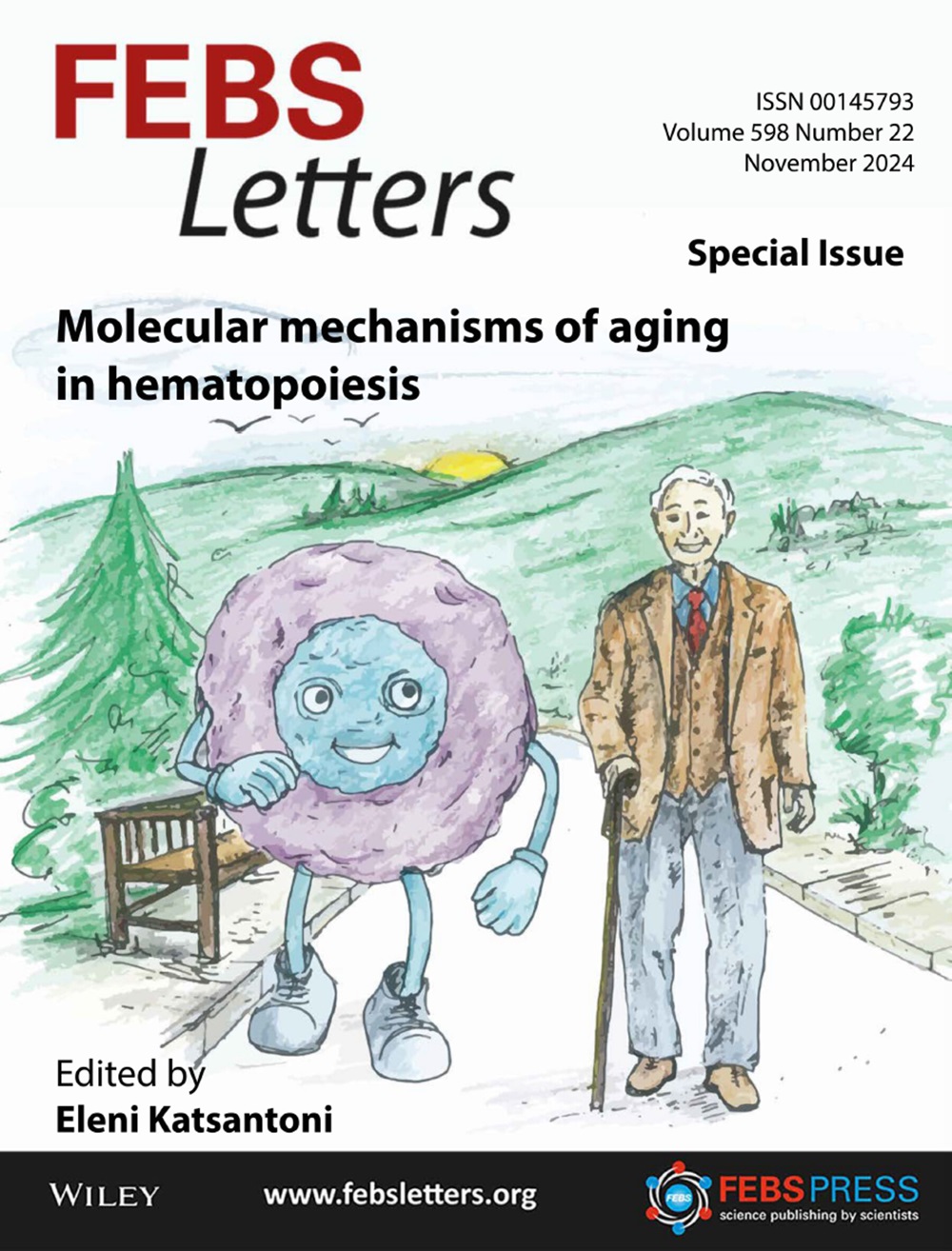细胞膜上的TOR信号。
IF 3
4区 生物学
Q1 Biochemistry, Genetics and Molecular Biology
引用次数: 0
摘要
雷帕霉素靶蛋白(TOR)是一种高度保守的蛋白激酶,通过TORC1和TORC2两种不同的复合物调节细胞生长和代谢。每个复合物调节不同的下游目标;然而,两者都在脂质膜上被激活和调节。在本研究中,我们将对TOR复合物的结构生物学及其调控的分子机制进行修订,强调脂质膜对其功能的重要性。本文章由计算机程序翻译,如有差异,请以英文原文为准。
TOR signaling on membranes.
The Target of Rapamycin (TOR) is a highly conserved protein kinase that regulates cell growth and metabolism through two distinct complexes, TORC1 and TORC2. Each complex regulates different downstream targets; however, both are activated and regulated on lipid membranes. In this Perspective, we will revise the structural biology of TOR complexes and the molecular mechanisms governing their regulation, highlighting the importance of lipid membranes for their function.
求助全文
通过发布文献求助,成功后即可免费获取论文全文。
去求助
来源期刊

FEBS Letters
生物-生化与分子生物学
CiteScore
7.00
自引率
2.90%
发文量
303
审稿时长
1.0 months
期刊介绍:
FEBS Letters is one of the world''s leading journals in molecular biology and is renowned both for its quality of content and speed of production. Bringing together the most important developments in the molecular biosciences, FEBS Letters provides an international forum for Minireviews, Research Letters and Hypotheses that merit urgent publication.
 求助内容:
求助内容: 应助结果提醒方式:
应助结果提醒方式:


